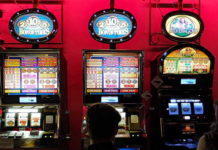
With the establishment of more casinos, betting in South Africa has become a popular form of entertainment among both locals and tourists. With luxury resorts such as Monte Casino, Sun International, and Emperor Palace, the state is attracting a lot of people that are passionate about roulette or poker. There are also huge sectors of sports betting and lotteries which are in demand in the country, with horse and rugby being particularly popular.
But all these activities aren’t fully legalized and there are lots of rules and restrictions. Recently, the government has decided to put into place new gambling legislation, more stringent than ever before. What does it mean for the industry in South Africa?
First attempts of regulation
Before the 90s, gambling was totally illegal in South Africa. The only form of lawful betting in the country was represented by the horse racing industry. Numerous betting sites across South Africa weren’t regulated which meant a loss of potential income for the country. After holding the first democratic elections in 1994, the legislators have recognized the fact that licensing could bring significant benefits to the local economy, including employment opportunities and generation of revenue.
With the National Gambling Act of 1996, various betting forms have become regulated. The National Gambling Board was also established at that time. The government has developed norms and has started to monitor how national and provincial wagering activities were maintaining the standards. This act has changed the way South Africa dealt with gambling, eliminating criminalized businesses and offering customers a protected form of entertainment they desired.
Legislation of lotteries which are quite successful in the country is covered in a separate act of 1997. Report from 2008 has shown that lotto is the most popular type of gambling in South Africa. Since 2015, there’s one national lottery which gives 34% of its revenue to a central charitable fund.
Amendments to the Act
The new gambling act has expanded the definition of gambling, betting, and related activities, in 2004. Online casinos were claimed illegal, though it was possible to use sites based in another country. Sports booking business remained lawful.
There were attempts to legalize online gambling, but the amendment proposed in 2008 was never enacted. In 2010, even websites registered outside South Africa were prohibited. This, however, doesn’t stop some online casinos from offering their services to customers from South Africa. Actually, there are many sites that support their currency (ZAR) and even provide them with special bonuses. All it takes for players is to find a trustful operator.
Changes introduced in 2018
In 2018, South Africa has strengthened the regulations. The National Gambling Amendment Act prohibits wagering on the websites, as well as restricts financial institutions and payments systems from dealing with products and operators that aren’t registered in the country.
While the maximum of 40 casino licenses was included in the national framework, nine provinces were given the power to enact their own laws regarding licensing gambling operators.
Any South African gambler that uses international sites will have to forfeit winnings to the National Gambling Regulator (NRG) which has replaced the National Gambling Board. The NRG registers unlawful gaming operators and has a right to disqualify them from obtaining a licence for five years. Apart from the NRG, there’s the National Lotteries Commission (NLC) which has the authority over the regulation of sports pools and lotteries and defines the limit of licenses that can be granted.
Among other changes, dog races were banned, while horse racing remains a fruitful industry. Also, the Act has imposed restrictions on advertisements and locations: gambling premises in public places should now have separate entrances.
Overall, every part of the industry will face tougher regulations. Despite the restrictions, online gambling remains popular and represents a massive loss in tax revenue which is why the government is aimed at finding illegal establishments rather than tracking individuals playing and betting on forbidden websites. But illegal gaming not only harms the economy but puts customers at risk: there’s the Casino Association of South Africa (CASA) that warns about untrustful operators and wants people to report on suspicious establishments and offerings.
Conclusion
Looking through the history, we can see that gambling was severely restricted in South Africa until the formation of their first democratic government. Since the 90s, legislators have realized the potential profits of betting regulation.
Recent changes introduced in the Amendment Act have shown that rules have been strengthened and only land-based and sportsbooks businesses which were licenced in the state remain lawful. Prohibiting online gambling is probably not the best response to the rise of entertainments accessed on the Internet: while sports betting and other related activities online are legit in South Africa, it can be expected that the law will be modified again.













